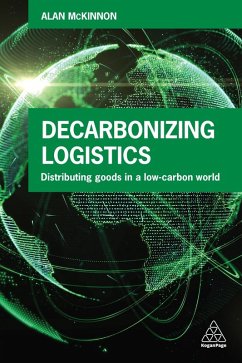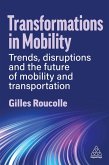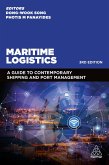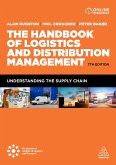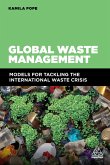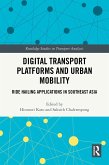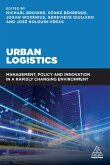Logistics accounts for around 9-10% of global CO2 emissions and will be one of the hardest economic sectors to decarbonize. This is partly because the demand for freight transport is expected to rise sharply over the next few decades, but also because it relies very heavily on fossil fuel. Decarbonizing Logistics outlines the nature and extent of the challenge we face in trying to achieve deep reductions in greenhouse gas emissions from logistical activities. It makes a detailed assessment of the available options, including restructuring supply chains, shifting freight to lower carbon transport modes and transforming energy use in the logistics sector. The options are examined from technological and managerial standpoints for all the main freight transport modes.
Based on an up-to-date review of almost 600 publications and containing new analytical frameworks and research results, Decarbonizing Logistics is the first to provide a global, multi-disciplinary perspective on the subject. It is written by one of the foremost specialists in the field who has spent many years researching the links between logistics and climate change and been an adviser to governments, international organizations and companies on the topic.
Hinweis: Dieser Artikel kann nur an eine deutsche Lieferadresse ausgeliefert werden.
Based on an up-to-date review of almost 600 publications and containing new analytical frameworks and research results, Decarbonizing Logistics is the first to provide a global, multi-disciplinary perspective on the subject. It is written by one of the foremost specialists in the field who has spent many years researching the links between logistics and climate change and been an adviser to governments, international organizations and companies on the topic.
Hinweis: Dieser Artikel kann nur an eine deutsche Lieferadresse ausgeliefert werden.
"Professor McKinnon is making again a ground-breaking contribution. The greenhouse gas footprint of logistics is large. Reducing it relies on several mechanisms, because logistics involves many activities and participants. This book disentangles this complexity and proposes a clear framework for reduction. It identifies interventions by shippers, service providers or the public sector. The book lays the foundations of initiatives to come. It should appeal to a wide range of policymakers, academics and practitioners." Jean-François Arvis, Lead Economist, The World Bank

